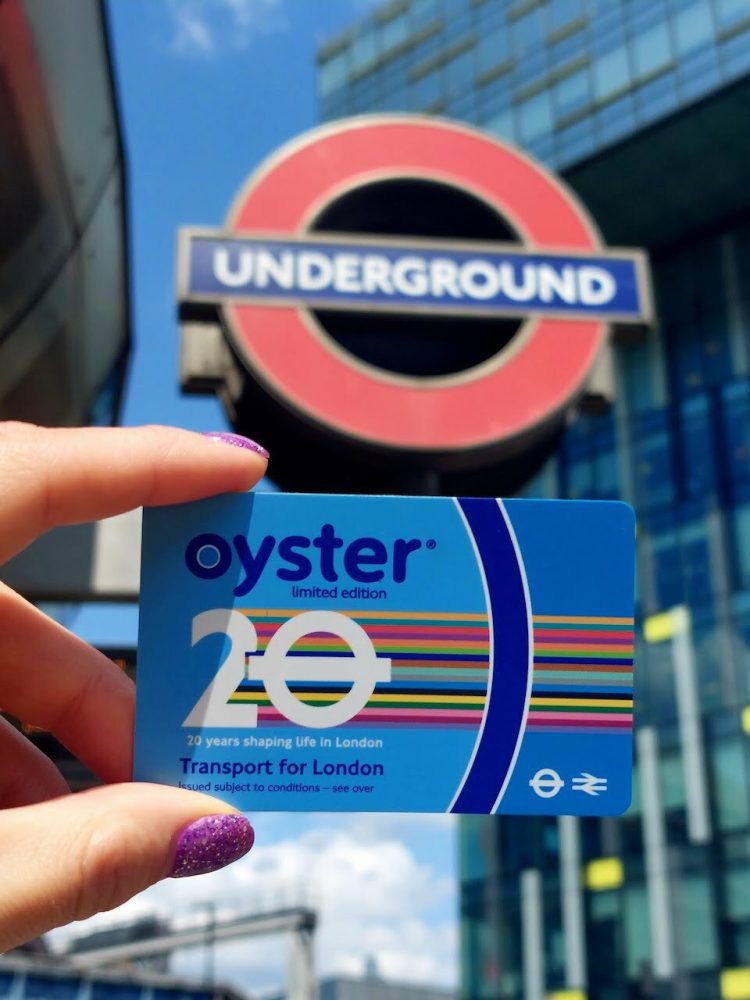Transport for London’s iconic Oyster card will see its 20th anniversary since its introduction on the 30th of June 2003.
The popular smart card supports passengers making their way across London’s public transport network, making journeys a great deal quicker and easier.
A new, limited edition Oyster card has been launched by Transport for London in order to celebrate two decades of use and is available via ticket machines at all London Underground stations in Zone 1, all Visitor Centres and a number of Oyster Ticket Stops in central London.
Over 125 million people across the globe have made use of the convenient card since its launch, marking a transformation in how customers paid for travel in London providing them the ability to add money to a smart card in order to benefit from the pay-as-you-go approach.
Thanks to the Oyster card, journeys became more efficient with passengers able to get on board buses or move through ticket gates faster than before, removing the need to queue up in order to purchase paper tickets.

20 Years of usage has also seen many changes made to the Oyster card in order to support customer needs:
- 2005 saw the introduction of fare capping, which provided customers with the opportunity to make as many journeys as needed without exceeding the cost of an equivalent Day Travelcard.
- 2008 saw the Zip Oyster card brand introduced for passengers under the age of 18
- 2010 saw the pay-as-you-go Oyster include all commuter rail services across Greater London.
- 2021 saw the introduction of weekly capping for Oyster card’s adult pay-as-you-go customers supporting those travelling on both Tube and rail services, removing the need to buy weekly Travelcards.
Across the country and around the world, Oyster has changed how people travel and has seen similar pay-as-you-go contactless technology for travel introduced.
Shashi Verma, Chief Technology Officer at TfL, said: “We’re excited to be celebrating 20 years of the Oyster card as a world-leading innovative way to travel. Customers have loved the convenience of pay-as-you-go travel, and we are immensely proud to celebrate two decades of the Oyster card making travelling in London easier. It has cemented TfL’s reputation for being at the forefront of innovation and paved the way for the use of contactless payments on public transport – not only in London but across the world.”
Seb Dance, Deputy Mayor for Transport said: “When introduced in 2003, Oyster was a trailblazer for urban travel, streamlining journeys for millions of Londoners who no longer had to queue to buy a ticket for each journey. It is admired across the world, inspiring and setting the standard for world-class public transport networks.”
“It’s great to celebrate 20 years of the Oyster card, which demonstrated London’s innovation at its best and has kept evolving ever since then, to meet the needs of a modern, thriving city.”
Amir Dawoodbhai, Member of TfL’s Youth Panel, said: “For many young Londoners, the Oyster card is their passport to freedom in this city, rather than learning to drive, as is the case in many other cities. That is testament to the impact the Oyster card has had on London’s transport in just under a generation, meaning that young people today are now better able to experience all the opportunities and that London has to offer. The fact that other major cities such as New York and Paris have only recently begun to use smart ticketing shows just how early a pioneer the Oyster card was, helping to cement London’s reputation as a city of public transport.”
Michael Roberts, Chief Executive for London TravelWatch, said: “The Oyster card has become as synonymous with travel in London as the black cab or red bus. And twenty years on, although contactless payment is becoming ever-more popular, many Londoners still rely on their trusty Oyster card.
“Oyster cards help people manage their finances as they can budget how much they top up and they enable railcards to be linked to them, often offering handy discounts. We look forward to working with TfL to make sure the Oyster card continues to work for Londoners.”
Ben Curtis, Campaigns Officer at Campaign for Better Transport, said: “The Oyster card changed the game for urban transport systems worldwide, and its legacy remains the envy of the world. Over the years, the Oyster card has not only transformed the way residents and visitors alike navigate London but has served as a symbol of London’s success in creating an inclusive and supportive public transport network for all.”.
In order to keep personal details safe, Transport for London has introduced an upgrade for Oyster and contactless online accounts, which sees customers use multi-factor authentication to log in. An online account enables customers to check their journey history and fares paid, use the Transport for London website and apply for refunds. The Transport for London Oyster and Contactless app also allows customers to top up their Oyster card whilst travelling and from the 6th of July 2023 will see online refunds reinstated with payments made to the original payment card which purchased the credit or using the associated online account.






Responses